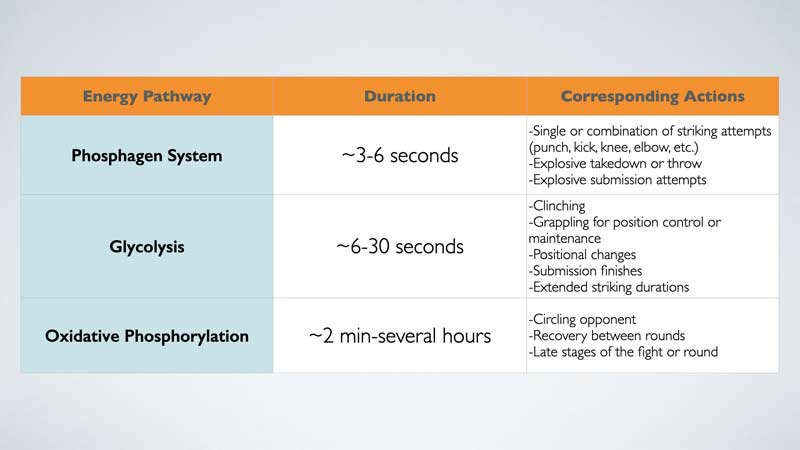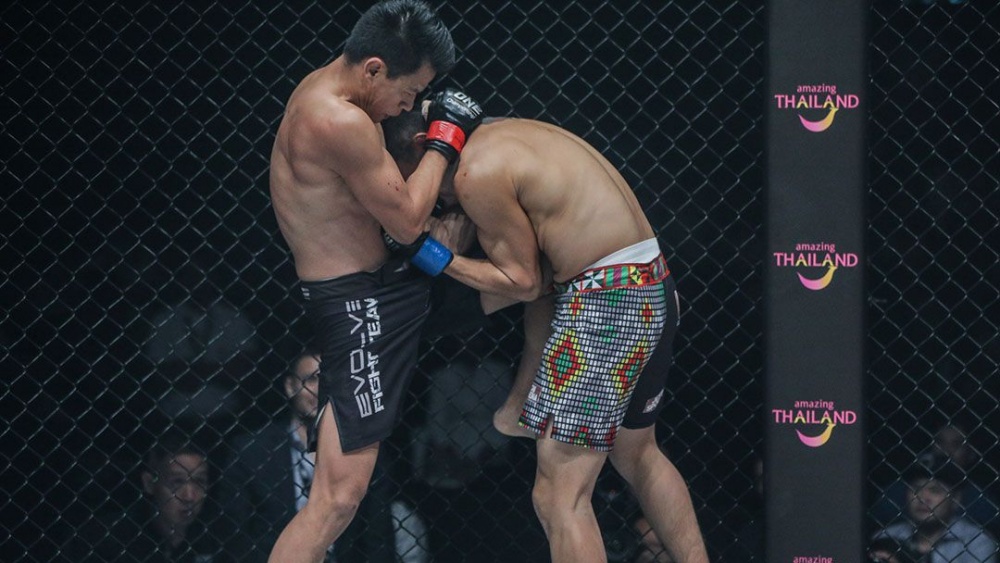Are you finding it challenging to keep up your energy levels during your MMA training sessions? Look no further, as we have compiled a list of the best and most effective ways to maintain your energy levels throughout your intense training. From optimizing your nutrition to staying properly hydrated, these tips are sure to keep you feeling energized and ready to conquer your MMA workouts.

Proper Nutrition
Maintaining proper nutrition is crucial for sustaining energy levels during MMA training. By following a balanced diet and consuming sufficient calories, you can ensure that your body has the fuel it needs to perform at its best. Including protein-rich foods in your meals can provide sustained energy and aid in muscle recovery. Additionally, staying properly hydrated is essential for overall health and optimal performance.
Eat a Balanced Diet
A balanced diet consists of the right proportions of carbohydrates, proteins, and fats. Carbohydrates serve as the body’s primary source of energy, so it’s important to include them in each meal. Opt for complex carbohydrates like whole grains, vegetables, and fruits, as they provide a steady release of energy. Incorporating lean proteins such as chicken, fish, tofu, or legumes can support muscle growth and repair. Don’t forget to include healthy fats from sources like avocados, nuts, and olive oil.
Consume Sufficient Calories
During intense MMA training, your body requires more calories to fuel the increased activity level. It’s important to consume enough calories to meet your energy needs and avoid feeling fatigued. Calculating your daily caloric needs based on your activity level can help you determine how many calories to consume. Remember to listen to your body and adjust your caloric intake accordingly to ensure you have enough energy for training.
Include Protein-rich Foods
Protein is an essential macronutrient that aids in muscle repair and recovery. Including protein-rich foods in your meals helps support muscle growth and reduces muscle soreness. Aim for high-quality protein sources such as lean meats, dairy products, eggs, and plant-based protein options like tofu and legumes. Consuming protein throughout the day, especially after training sessions, can help optimize your body’s recovery process.
Stay Hydrated
Proper hydration is crucial for maintaining energy levels and overall health during MMA training. Dehydration can cause fatigue, muscle cramps, and decreased athletic performance. Make it a habit to drink water throughout the day, even when you’re not training. Monitoring the color of your urine can be a good indicator of your hydration levels. Pale yellow urine indicates proper hydration, while darker urine suggests dehydration. Consider consuming electrolyte-rich beverages or sports drinks during intense training sessions, but be mindful of excessive caffeine or alcohol consumption, as they can dehydrate your body.
Pre-Workout Meal
Fueling your body with the right pre-workout meal can provide the energy needed for an intense MMA training session. Timing your meal appropriately, including carbohydrates, and avoiding heavy or fatty foods are key considerations for maximizing performance.
Time Your Meal Right
The timing of your pre-workout meal is essential. Aim to eat a balanced meal containing carbohydrates, protein, and some fats about 2-3 hours before your training session. This timeframe allows enough time for digestion and absorption, providing you with sustained energy throughout your training session. If you have less time available, consuming a smaller snack or liquid meal about 1 hour before training can also be beneficial.
Include Carbohydrates
Carbohydrates are the primary source of energy for your muscles. Including carbohydrates in your pre-workout meal can help fuel your training session and improve your overall performance. Opt for complex carbohydrates such as whole grain bread, oatmeal, or brown rice. These sources provide a slow and steady release of energy, avoiding sudden spikes and crashes. It’s important to strike a balance and avoid consuming excessive amounts of carbohydrates that may lead to digestive discomfort during your workout.
Avoid Fatty or Heavy Foods
Fatty or heavy foods can make you feel sluggish and lethargic during your MMA training. Steer clear of high-fat meals or foods that are difficult to digest. These include greasy fast food, fried foods, and heavy sauces. Such foods can slow down digestion and divert energy away from your muscles, making it challenging to perform at your best. Instead, focus on lighter options that are easier to digest and provide a steady source of energy.
Consider Protein for Sustained Energy
While carbohydrates are crucial for immediate energy, adding a moderate amount of protein to your pre-workout meal can provide sustained energy during your MMA training. Protein helps slow down the digestion of carbohydrates, promoting a more gradual release of energy. Consider incorporating lean sources of protein such as chicken, fish, or plant-based options like tofu or lentils. Finding the right balance of carbohydrates and protein for your pre-workout meal can help optimize your energy levels and enhance your performance.
Snack Before Training
For long training sessions or when you need an energy boost before shorter workouts, a pre-training snack can be beneficial. Choosing energy-dense snacks that are rich in carbohydrates and including some protein for recovery can help sustain your energy levels throughout your training.
Choose Energy-dense Snacks
Energy-dense snacks are those that provide a significant amount of calories in a relatively small portion size. These snacks are ideal for quickly replenishing energy stores and preventing fatigue during training. Opt for snack options such as bananas with nut butter, trail mix with dried fruits and nuts, or energy bars. These types of snacks are convenient, portable, and pack a punch in terms of energy.
Focus on Carbohydrates
Carbohydrates should be the focus of your pre-training snack as they provide the energy needed for immediate use. Include easily digestible carbohydrates such as fruits, whole grain crackers, or rice cakes. These options provide a quick source of energy to fuel your training. Avoid high-fiber or fiber-packed foods before your workout, as they can cause digestive discomfort and take longer to digest.
Include Protein for Recovery
Including a small amount of protein in your pre-training snack can help kickstart the recovery process and reduce muscle breakdown during your workout. Protein can also help regulate blood sugar levels and prevent energy crashes. Opt for protein sources like Greek yogurt, low-fat cheese, or a small handful of nuts. However, keep in mind that the protein portion of your pre-training snack should be smaller compared to the carbohydrate portion.
Avoid Foods that Cause Digestive Discomfort
Different individuals may have different sensitivities to certain foods, particularly before physical activity. Avoid foods that you know can cause digestive discomfort or lead to bloating and gas during your training. Experiment with different snack options to find what works best for you. The goal is to fuel your body without any discomfort or distractions so that you can perform optimally.
Proper Hydration
Staying properly hydrated is crucial for maintaining your energy levels and supporting overall performance during MMA training. By drinking water throughout the day, monitoring urine color, considering electrolyte-rich beverages, and limiting excessive caffeine or alcohol, you can ensure optimal hydration.
Drink Water throughout the Day
Drinking water consistently throughout the day is essential for maintaining proper hydration. Aim to drink at least 8 glasses, or around 64 ounces, of water daily. To make hydration more manageable, carry a reusable water bottle with you and take regular sips throughout the day. Avoid waiting until you’re thirsty to drink water, as this may indicate that your body is already dehydrated. By staying hydrated, you can improve your endurance, mental focus, and overall performance.
Monitor Urine Color
Monitoring the color of your urine can give you insights into your hydration status. Ideally, your urine should be a pale yellow color, similar to lemonade. Darker urine may be a sign of dehydration, indicating that you need to increase your water intake. Keep an eye on the color of your urine throughout the day, especially before and after your training sessions. By doing so, you can ensure that you are properly hydrated and ready to perform at your best.
Consider Electrolyte-rich Beverages
During intense training sessions, sweating can cause an electrolyte imbalance in your body. Electrolytes, such as sodium, potassium, and magnesium, play a crucial role in hydration and muscle function. Consider consuming electrolyte-rich beverages, such as sports drinks or coconut water, during and after your training sessions to replenish lost electrolytes. However, keep in mind that these beverages also contain calories and should be consumed in moderation to avoid excess sugar consumption.
Avoid Excessive Caffeine or Alcohol
While caffeine and alcohol are commonly consumed beverages, they can have negative effects on hydration levels. Both caffeine and alcohol have diuretic properties, meaning they can increase urine production and potentially lead to dehydration. Excessive consumption of these substances can disrupt your body’s fluid balance and hinder your performance during MMA training. It’s best to limit caffeine and alcohol intake before, during, and after your training sessions and prioritize water as your primary hydrating beverage.

Adequate Rest and Recovery
Rest and recovery are just as important as training itself when it comes to maintaining energy levels during MMA training. By getting sufficient sleep, taking rest days, considering a midday nap for an energy boost, and prioritizing stress management, you can optimize your body’s ability to recover and perform at its best.
Get Sufficient Sleep
Getting enough quality sleep is essential for replenishing energy stores, promoting muscle recovery, and supporting overall health and well-being. Aim for 7-9 hours of uninterrupted sleep per night to optimize your training performance. Establishing a consistent sleep schedule, creating a sleep-friendly environment, and practicing good sleep hygiene can help ensure that your body recharges and recovers properly.
Take Rest Days
Incorporating rest days into your training schedule is essential to prevent overtraining and allow your body to recover. Rest days give your muscles and central nervous system time to repair and adapt to the demands of MMA training. Listen to your body and take rest days when you feel fatigued or notice signs of overtraining, such as prolonged muscle soreness, decreased performance, or an increase in injuries. Use this time to engage in active recovery activities like gentle stretching, foam rolling, or low-impact exercises.
Consider Nap for Midday Energy Boost
If you find yourself feeling fatigued or lacking energy during the day, taking a short nap can provide a quick energy boost. A 20-30 minute nap can help improve alertness, cognitive function, and reaction time. However, avoid napping too close to your bedtime, as it may disrupt your nighttime sleep. Set an alarm to ensure you don’t oversleep, and find a quiet, comfortable environment to help you effectively recharge.
Prioritize Stress Management
Stress can negatively impact energy levels and overall well-being. Incorporate stress management techniques into your daily routine to help regulate stress and boost energy. Practice activities such as meditation, deep breathing exercises, or yoga to promote relaxation and improve mental focus. Additionally, engaging in hobbies, spending time with loved ones, and maintaining a healthy work-life balance can help reduce stress levels and contribute to your overall energy reserves.
Supplementation
Supplements can be beneficial in supporting energy levels and overall performance during MMA training. However, it’s essential to consult with a health professional before introducing any supplements into your regimen. Energy-boosting supplements, essential vitamins and minerals, and optimizing omega-3 fatty acid intake are areas to consider.
Consult with a Health Professional
Before incorporating any supplements into your training routine, it’s crucial to consult with a qualified health professional. They can assess your individual needs and provide guidance on which supplements, if any, may be suitable for you. A health professional can also help ensure that any supplements you take are safe and do not interfere with any medications or pre-existing conditions.
Consider Energy-boosting Supplements
Certain supplements may help enhance energy levels during MMA training. These include caffeine, creatine, and beta-alanine. Caffeine is a stimulant that can improve alertness and focus. Creatine is known to enhance muscular power and strength, while beta-alanine can delay muscle fatigue. However, it’s important to note that these supplements may not be suitable for everyone, and their effects can vary. Always consult with a health professional before considering energy-boosting supplements.
Include Essential Vitamins and Minerals
Vitamins and minerals play key roles in energy production and overall health. Ensuring you meet your Recommended Daily Allowances (RDAs) of essential vitamins and minerals can support your energy levels during MMA training. Focus on consuming a well-balanced diet that includes a variety of fruits, vegetables, whole grains, lean proteins, and dairy or suitable alternatives. If you have specific dietary restrictions or concerns, consulting with a health professional or registered dietitian can help identify any potential nutrient deficiencies and provide guidance on appropriate supplementation.
Optimize Omega-3 Fatty Acid Intake
Omega-3 fatty acids, specifically EPA and DHA, have been shown to have numerous health benefits, including reducing inflammation, enhancing brain function, and supporting cardiovascular health. While omega-3 fatty acids can be obtained through dietary sources like fatty fish (e.g., salmon, sardines), walnuts, and flaxseeds, supplementation with high-quality fish oil capsules may be beneficial for individuals who struggle to meet their omega-3 needs through their diet alone. Omega-3 fatty acids can support overall energy levels and recovery throughout your MMA training.

Effective Warm-up
An effective warm-up routine prepares your body for the demands of MMA training, enhances performance, and reduces the risk of injury. Incorporate dynamic stretching, mobility exercises, light cardiovascular activity, and activation drills into your warm-up routine for maximum effectiveness.
Dynamic Stretching
Dynamic stretching involves moving your muscles and joints through a full range of motion in a controlled manner. It helps increase blood flow, loosen up muscles, and improve flexibility. Incorporate dynamic stretches such as walking lunges, leg swings, arm circles, or bodyweight squats into your warm-up routine. Be sure to focus on the muscles and joints specific to the MMA training you’ll be undertaking.
Mobility Exercises
Mobility exercises focus on improving the flexibility and range of motion of specific joints. These exercises target areas like the hips, shoulders, and spine, which are essential for many MMA techniques. Include exercises such as hip rotations, shoulder dislocations, or thoracic spine rotations to promote joint mobility and prepare your body for the movement patterns required during training. Gradually increase the intensity and duration of each mobility exercise as you warm up.
Light Cardiovascular Activity
Engaging in light cardiovascular activity raises your heart rate, increases blood flow, and helps warm up your muscles. Incorporate 5-10 minutes of low-intensity cardio exercises like jogging, cycling, or skipping rope into your warm-up routine. This will increase your core body temperature and prepare your cardiovascular system for the more intense workout to follow. Avoid going all-out or pushing your limits during this phase; the purpose is to gradually elevate your heart rate and warm up, not to fatigue yourself.
Activation Drills
Activation drills target specific muscles or muscle groups to activate and engage them before your MMA training. These exercises help optimize muscle recruitment, improve coordination, and prepare your body for the demands of the training session. Focus on drills that mimic the movements and techniques you’ll be performing during your training, such as shadow boxing, light wrestling drills, or quick footwork drills. Performing activation drills can help improve neuromuscular communication and enhance your performance.
Strategic Training Schedule
Developing a strategic training schedule can help you maintain energy levels and prevent burnout during MMA training. By balancing intensity and volume, alternating between intense and light training days, including active recovery sessions, and periodizing your training, you can optimize performance and allow for adequate rest and recovery.
Balance Intensity and Volume
Balancing the intensity and volume of your training sessions is key to preventing burnout and sustaining energy levels. Intensity refers to the level of effort or difficulty of your training, while volume is the amount of training you do. Avoid consistently training at a high intensity and volume, as this can lead to overtraining and increased risk of injury. Periodically incorporate lower-intensity and lower-volume training sessions into your schedule to allow for recovery and prevent fatigue.
Alternate Intense and Light Training Days
To maintain your energy levels and prevent burnout, it’s crucial to alternate between intense and light training days. Intense training sessions challenge your body and require higher energy expenditure, while lighter training days allow for recovery and regeneration. Schedule your intense training days strategically, ensuring that you have lighter training or rest days scheduled before or after to provide your body with the necessary rest and recovery time.
Include Active Recovery Sessions
Active recovery sessions can help enhance the recovery process and maintain energy levels during intense training periods. These sessions involve engaging in low-intensity activities that promote blood flow and mobilize your joints without overly taxing your muscles. Examples of active recovery activities include light swimming, cycling, yoga, or gentle stretching. Incorporating these types of sessions into your training schedule can help accelerate muscle repair, reduce soreness, and improve overall training performance.
Periodize Training to Prevent Burnout
Periodizing your training involves dividing your training into specific cycles or periods designed to target various aspects of fitness development while allowing for proper rest and recovery. This approach helps prevent burnout, maintain motivation, and consistently improve performance. Work with a qualified coach or trainer to develop a periodized training plan tailored to your goals, incorporating different training phases such as base training, strength and power development, specific skill training, and tapering before competitions.

Properly Manage Stress
Stress can significantly impact your energy levels and overall well-being during MMA training. Implementing stress management strategies like meditation or mindfulness, engaging in relaxation techniques, seeking support when needed, and maintaining a healthy work-life balance can help you better manage stress.
Practice Meditation or Mindfulness
Meditation and mindfulness practices can help reduce stress, improve focus, and promote mental clarity during MMA training. Dedicate a few minutes each day to sit quietly and focus on your breath, allowing thoughts to come and go without judgment. Alternatively, you can try guided meditation apps or mindfulness exercises that focus on body awareness and relaxation. By incorporating these practices into your routine, you can enhance your ability to manage stress and boost energy levels.
Engage in Relaxation Techniques
Various relaxation techniques can help reduce stress and promote relaxation. Experiment with techniques like deep breathing exercises, progressive muscle relaxation, or visualization exercises to find what works best for you. Engaging in these relaxation techniques during breaks between training sessions or before bed can help you unwind, improve sleep quality, and recharge your energy levels.
Seek Support from Peers or Professionals
It’s important to recognize that you don’t have to manage stress alone. Reach out to peers, friends, or family members who can support you during challenging times. Sharing your experiences, concerns, and victories with others who understand the demands of MMA training can provide both emotional and practical support. If stress becomes overwhelming or persistent, consider seeking professional help from a counselor or therapist who specializes in stress management or sports psychology.
Maintain a Work-Life Balance
Maintaining a healthy work-life balance is essential for managing stress and sustaining energy levels during MMA training. Prioritize your commitments and allocate time for the activities and relationships that bring you joy and relaxation. Strive for balance between your training, work, relationships, and personal time. Remember that rest and recovery are just as important as training itself, and taking time to recharge can actually improve your performance and energy levels.
Listen to Your Body
Listening to your body is crucial for maintaining energy levels and avoiding overtraining or injury during MMA training. Recognizing overtraining symptoms, modifying training intensity or duration when needed, resting when fatigued or injured, and monitoring your recovery rate are all important aspects of listening to your body.
Recognize Overtraining Symptoms
Overtraining can have detrimental effects on your energy levels, performance, and overall health. Pay attention to the following symptoms that may indicate overtraining: prolonged or excessive muscle soreness, decreased performance, persistent fatigue, changes in mood or motivation, frequent injuries, or difficulty sleeping. If you experience any of these symptoms, it’s essential to assess your training load and make adjustments to allow for proper recovery.
Modify Training Intensity or Duration as Needed
It’s important to recognize when your body may need a break or a slight adjustment in training intensity or duration. If you’re feeling excessively tired or fatigued, consider reducing the intensity or shortening the duration of your training sessions. Your body requires adequate rest and recovery to adapt and improve from the stress of training. Adjusting your training when needed can help prevent burnout, reduce the risk of injury, and allow for proper energy restoration.
Rest When Fatigued or Injured
Rest is a crucial component of training and is necessary for your body to repair and rebuild. If you’re feeling fatigued or notice any signs of injury, it’s important to listen to your body and take the necessary rest to recover. Pushing through fatigue or training with an injury can worsen the situation and lead to long-term consequences. Give yourself permission to rest, prioritize recovery, and consult with a healthcare professional or coach if you have concerns about an injury.
Monitor Recovery Rate
Monitoring your recovery rate is vital for maintaining energy levels and optimal performance. Pay attention to how quickly you bounce back from intense training sessions or bouts of fatigue. If you find that your recovery is taking longer than usual or if you’re consistently feeling fatigued, it may be a sign that you need to make adjustments to your training load or lifestyle factors. Consistently monitoring your recovery can help you make informed decisions on when to push harder or when to take a step back to optimize your energy levels.
In conclusion, maintaining energy levels during MMA training requires a comprehensive approach that encompasses proper nutrition, pre-workout meals, hydration, rest and recovery, supplementation, warm-up routines, training schedules, stress management, and listening to your body. By following these best practices, you can enhance your energy levels, optimize performance, and achieve your goals in MMA training. Remember to consult with qualified professionals, such as health professionals or trainers, to tailor these approaches to your individual needs and circumstances. Stay committed, stay fueled, and stay energized for success in the ring!


